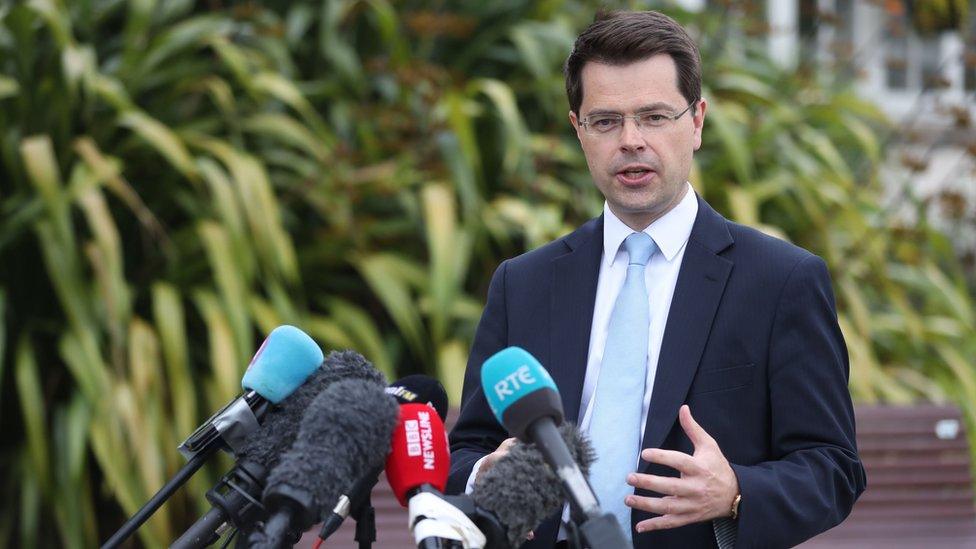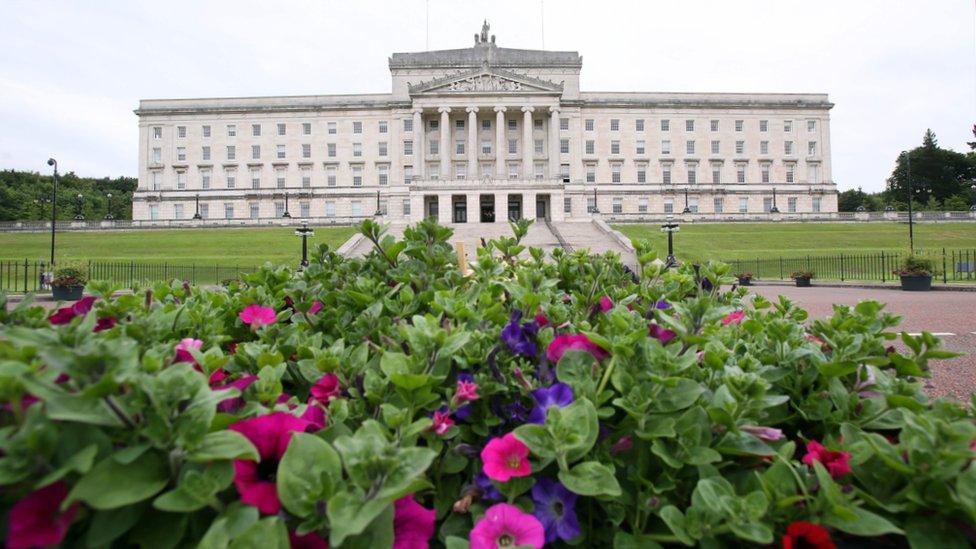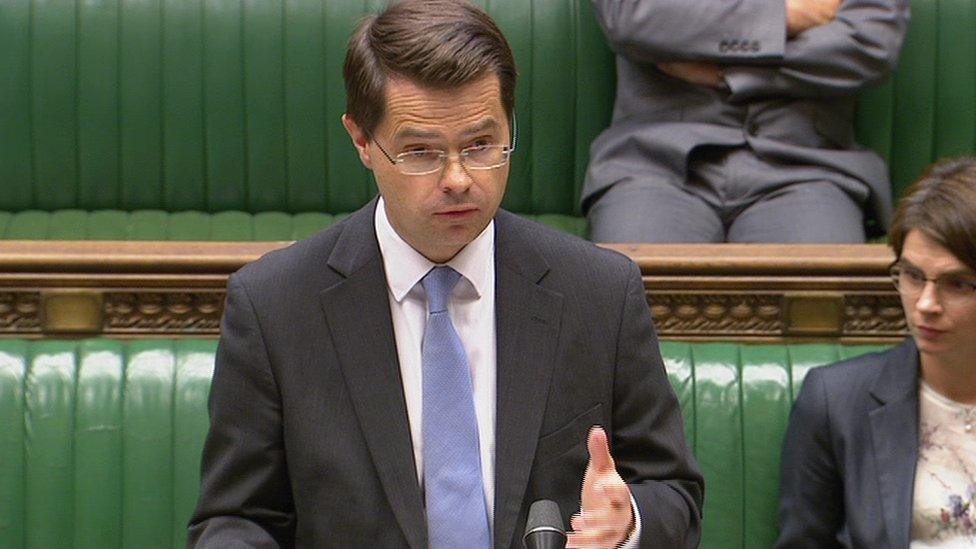NI health and education benefit in £131m funding boost
- Published

James Brokenshire says a "critical point" is approaching for Northern Ireland's finances
Health and education are the major beneficiaries of £131m in additional money for Northern Ireland.
The move was announced by Northern Ireland Secretary James Brokenshire, as part of a reallocation of funds known as a monitoring round.
Health is to receive most of the cash - £60m - with education getting £30m.
The remainder of the money will be divided between other departments, with civil servants in control of spending after the collapse of Stormont.
The cash had been in the pipeline for Northern Ireland, £42m of it flowing from the chancellor's spring budget in March, under the Barnett formula.
Most of the remaining money was left over as an underspend from the 2016-17 Stormont budget.
'Critical point approaching'
This is Mr Brokenshire's second intervention on Northern Ireland's finances in the absence of both an executive and a 2017-18 budget.
Earlier this year, Westminster had to sort out rates bills.

Civil servants are controlling spending at Stormont after the collapse of the executive
It could be forced to impose a budget in the autumn if a political deal is not struck to allow a return of Stormont.
The secretary of state said the funding allocation did not include any of the £1bn agreed for Northern Ireland between the Conservatives and the Democratic Unionist Party (DUP) in the deal to secure support for Theresa May's minority government.
He added: "A restored executive will need to agree how it wishes to allocate these funds to projects within the priority areas."

Analysis: John Campbell, BBC News NI economics editor
When James Brokenshire published an indicative budget in April it included a 1% cut in cash for education. This led to an outcry from headteachers, who were already struggling with falling budgets.
Subsequently, more than 40 principals in greater Belfast said they would refuse to implement any more cuts, even if it pushed their schools into a deficit.
Now, the money has been found to reverse that announced cut and even add a fraction more money.
In cash terms, education was getting £1.877bn in 2016-17 and this financial year it will get £1.890bn.
However, when you factor in the effects of inflation, it means the education budget is still falling in real terms.
It is a reminder that Stormont's day-to-day budgets remain under serious pressure.

Mr Brokenshire said in his statement that Northern Ireland's finances have "not yet reached critical point, but it is approaching".
He said his latest move is "by no means a solution for the long-term".
"It is an interim step to keep Northern Ireland's finances functioning in the continued absence of devolved government," he added.
The region has been without a functioning executive since January, when the coalition led by the DUP and Sinn Féin collapsed over a green energy scandal.
Talks in both the spring and summer aimed at restoring power-sharing at Stormont failed, with the parties remaining deadlocked over a number of issues.
Ulster Unionist Finance spokesperson, Steve Aiken OBE MLA said that while the provided "clarity", it does not "solve the crisis in our public services which deepens every day".
"We simply cannot keep just drifting along. The indicative budget also doesn't take into account the extra finance outlined in the DUP/Conservative deal.
"People will rightly be questioning when they can expect to feel the benefits of this money."
Sinn Féin MLA Conor Murphy said: "While it is good that today's statement provides some clarity, the fact remains that spending priorities should be set by a credible, sustainable executive.
"The reason we don't have that is because the DUP, supported by James Brokenshire, have still not addressed the rights-based issues which are preventing the establishment of an executive."
Alliance Deputy Leader Stephen Farry MLA has said the Secretary of State did not go far enough in providing certainty as to how decisions can be taken.
Dr Farry said James Brokenshire's intervention was "sadly inevitable" given the failure of political parties to restore a functioning Eexecutive but added it was "the absolute bare minimum the Secretary of State should be doing at this stage".
The Progressive Unionist Party (PUP) said: "The current impasse has highlighted the lack of responsibility being shown and a serious lack of leadership on all fronts.
"With that in mind we call on all parties to once again focus on the things that unite us and tie us together for the common good.
"If we can do that, then, and only then, will we be in a position to deal with the more contentious issues."
- Published12 July 2017
